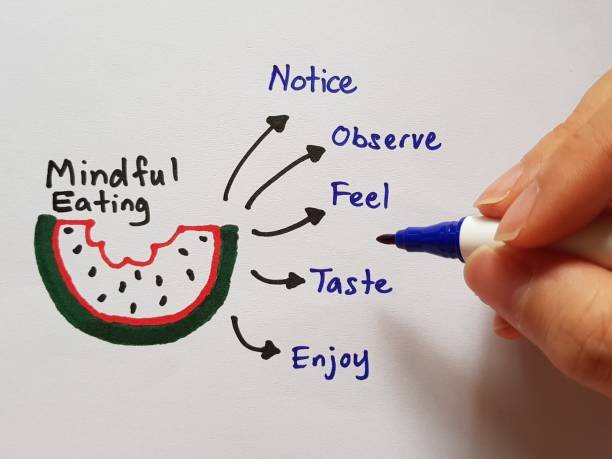We’ve all been there, dedicating time to diet plans, hitting the gym consistently, and yet, the scale doesn’t budge. It can feel incredibly frustrating when you’re doing everything “right,” but the stubborn pounds remain. So, why is it so hard to lose weight? It turns out, the reasons behind weight struggles are not just about calories in and calories out. Several factors, many of which are hidden beneath the surface, can play a huge role in making weight loss seem impossible.
If you’ve been battling with your weight and wondering why those extra pounds just won’t come off, it’s time to dig deeper into what’s really happening in your body.
1. Hormonal Imbalances: The Invisible Players in Your Weight Loss Journey
Hormones play a major role in regulating body weight, metabolism, and fat storage. When your hormones are out of balance, it can make losing weight feel nearly impossible. For instance, insulin, cortisol, leptin, and thyroid hormones can all impact your ability to shed pounds.

Leptin Resistance
Leptin is a hormone that signals your brain when you’re full. However, when you experience leptin resistance, your brain doesn’t receive the message that you’ve had enough food, making you feel constantly hungry and leading to overeating. Leptin resistance is often linked to excess body fat, which creates a vicious cycle that can make weight loss more challenging.
Thyroid Imbalances
Your thyroid is responsible for regulating your metabolism. If you have hypothyroidism (an underactive thyroid), your metabolism slows down, making it harder to burn calories and lose weight. Symptoms of hypothyroidism include fatigue, weight gain, and feeling cold all the time. Fortunately, addressing thyroid imbalances through diet, lifestyle changes, or even hormone replacement therapy can help get your metabolism back on track.
Cortisol and Stress
Stress leads to high cortisol levels, which can trigger emotional eating and promote fat storage. This is why you may find yourself gaining weight during stressful periods, even if your eating habits haven’t changed.
What You Can Do
Hormonal imbalances are often at the root of weight struggles. To address this, it’s essential to take a holistic approach to wellness. This includes a healthy diet, proper sleep, stress management, and seeking professional support.
2. Diet Alone May Not Be Enough
Many people assume that simply eating less or choosing “healthy” foods will automatically lead to weight loss. However, even the healthiest of diets can be ineffective if your body isn’t absorbing the nutrients properly.

Gut Health and Nutrient Absorption
Your gut plays a vital role in digesting food and absorbing nutrients. If your gut health is compromised, whether due to conditions like leaky gut, IBS, or food sensitivities, it can affect your body’s ability to absorb nutrients, making it harder to lose weight. Furthermore, poor gut health can lead to inflammation, which has been shown to disrupt the hormones that regulate hunger and fat storage.
Inflammation and Weight Loss Resistance
Inflammation can interfere with your metabolism and weight loss efforts. It’s often caused by poor diet, stress, or environmental toxins, and it can lead to insulin resistance, making it harder for your body to burn fat effectively. This means that even if you’re eating clean and exercising regularly, chronic inflammation could be standing in the way of your progress.
What You Can Do
To optimize your body’s ability to absorb nutrients and fight inflammation, focus on improving gut health. This can be achieved through a balanced, anti-inflammatory diet that includes whole foods, fiber, and probiotics.
3. Genetics: Is Your Body Just Wired Differently?
Your genetics play a significant role in how your body responds to diet and exercise. Some people are genetically predisposed to store fat more easily, while others have a naturally faster metabolism. While you can’t change your genetic makeup, understanding your genetic predisposition can help you make informed decisions about the best diet and exercise plan for your body.
Genetic Predispositions to Obesity
Some individuals are genetically predisposed to store more fat or have a slower metabolism. For example, people with certain genetic variations may find it more difficult to burn calories efficiently, making weight loss slower and more difficult. Additionally, your genetic makeup can influence how your body processes carbs, fat, and protein, which in turn can affect your weight loss journey.
What You Can Do
Although you can’t change your genetics, you can work with them. A personalized approach to nutrition and exercise, tailored to your unique needs and genetic predispositions, can help you achieve your health goals. Functional medicine and genetic testing can be valuable tools in understanding how your genetics impact your metabolism and weight loss efforts.

At Kairos Health & Wellness, our team takes a personalized approach to weight loss, considering your unique genetic makeup and health history to create a tailored plan that works for you.
4. Lifestyle Factors: Sleep, Stress, and Exercise
Your lifestyle plays a critical role in determining whether or not you’re able to lose weight effectively. Even if you’re eating well and exercising, poor sleep and chronic stress can significantly hinder your progress.
Stress and Weight Loss
Stress can be a silent weight-gainer. When you’re stressed, your body produces high levels of cortisol, which can lead to increased hunger and cravings for sugary, fatty foods. This is why many people find themselves turning to food for comfort during stressful times, making emotional eating a major barrier to weight loss.
Exercise
Exercise is a crucial component of any weight loss plan. However, not all exercises are created equal. High-intensity interval training (HIIT), strength training, and cardio can help burn calories and increase metabolism, but the key is consistency. Inadequate or inconsistent exercise, combined with poor nutrition, can stall weight loss.
What You Can Do
To support weight loss, prioritize sleep and stress management alongside regular physical activity. Ensuring that you get 7-9 hours of quality sleep each night and adopting stress-reduction techniques like yoga, meditation, or deep breathing can make a significant difference.
5. Emotional Eating and Behavioral Patterns
Many people struggle with emotional eating, which can be a major barrier to weight loss. Stress, anxiety, depression, and other emotional triggers can cause people to eat for comfort rather than hunger, leading to overeating and unhealthy food choices.
Mindful Eating and Emotional Health
It’s important to address the root causes of emotional eating by practicing mindfulness and developing healthier coping mechanisms. Therapy, support groups, and stress-management techniques can help address emotional eating patterns and improve your relationship with food.

Conclusion: Achieving Sustainable Weight Loss with the Right Support
Weight loss is not just about cutting calories or exercising more, it’s about understanding the root causes that may be holding you back. Whether it’s hormonal imbalances, nutrient absorption issues, lifestyle factors, or emotional eating, addressing these obstacles with the right support is key to achieving lasting results.
At Kairos Health & Wellness, we understand that weight loss is a complex journey, and we’re here to help guide you every step of the way. Lola, one of our expert providers, specializes in hormone optimization, functional medicine, and root-cause healing. With her personalized, holistic approach, you can finally address the underlying issues that are keeping you from feeling your best and achieving your weight loss goals.
If you’re ready to take control of your health and start your journey toward lasting weight loss, reach out to us today to schedule a consultation.
Frequently Asked Questions
Q: Why Am I Always Tired?
Fatigue is often linked to hormonal imbalances, nutrient deficiencies, or chronic stress. At Kairos Health & Wellness, we use functional medicine and advanced testing to identify the root cause of fatigue and offer personalized solutions.
Q: Why do I feel hungry all the time, even after eating?
If you’re constantly feeling hungry, it could be due to hormonal imbalances, such as leptin resistance. Leptin is the hormone that tells your brain you’re full. When your body becomes resistant to leptin, it’s harder for your brain to register fullness, leading to overeating.
Q: Can diet really fix my energy?
Absolutely. A clean, anti-inflammatory diet helps regulate your hormones and stabilize blood sugar levels, both of which are essential for sustaining energy levels.
Q: Can a slow metabolism really prevent me from losing weight?
Yes, a slow metabolism burns fewer calories at rest, making it more difficult to lose weight. Factors like age, thyroid health, and genetics can contribute to a slower metabolism. You can help boost metabolism with strength training and by managing thyroid health.
Q: How is functional medicine different from regular care?
Functional medicine focuses on identifying the root cause of health issues, looking at your unique biology and environment. It’s a more comprehensive, personalized approach compared to conventional care
Q: Can you help men too?
Yes, absolutely! We offer personalized care for both men and women, addressing hormone imbalances, stress, and other underlying causes of fatigue and weight loss struggles.
Q: How do I get started?
Start by reaching out to us for a consultation. We’ll assess your health history and goals and create a customized plan to help you achieve your weight loss and wellness objectives.


